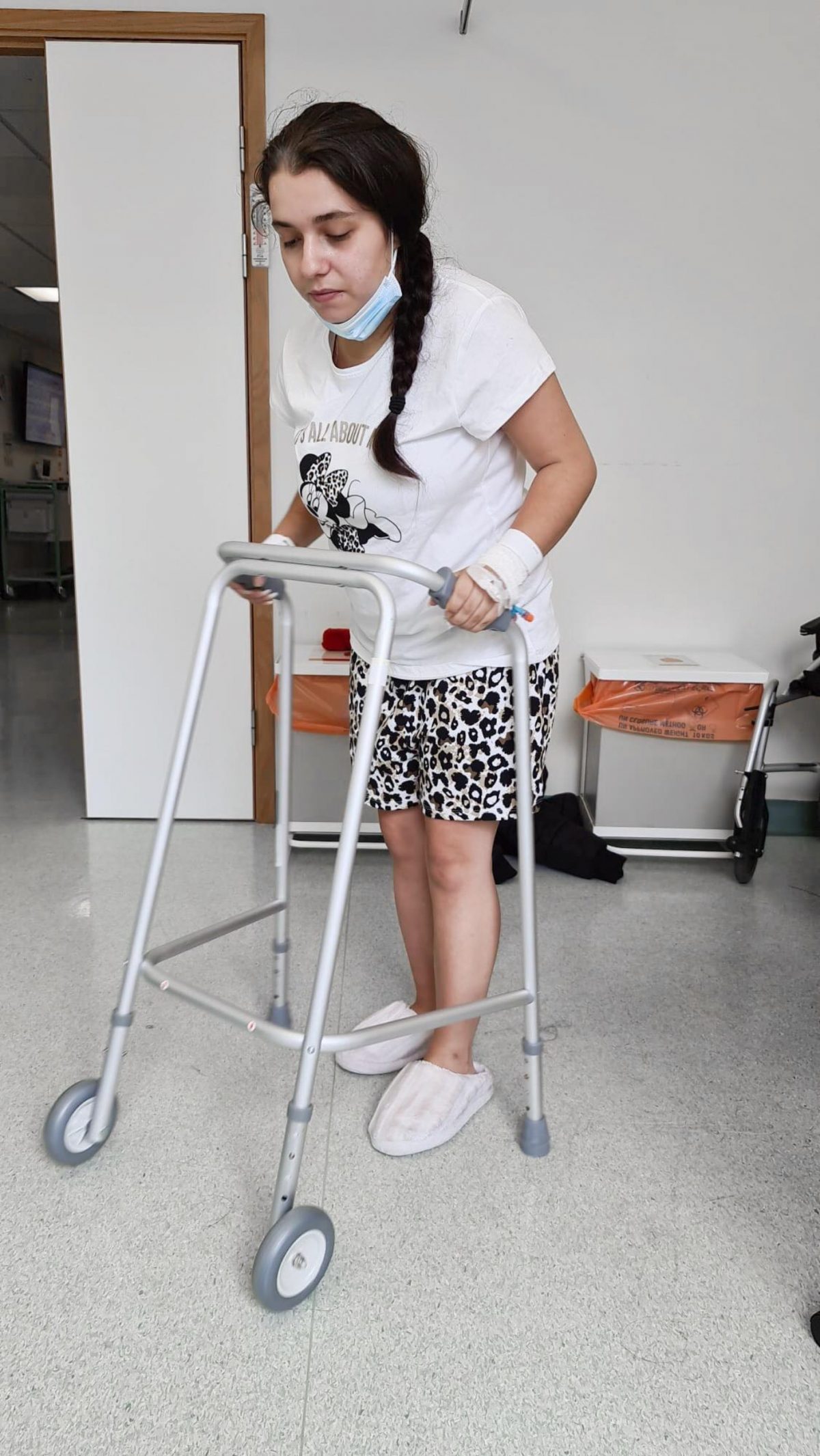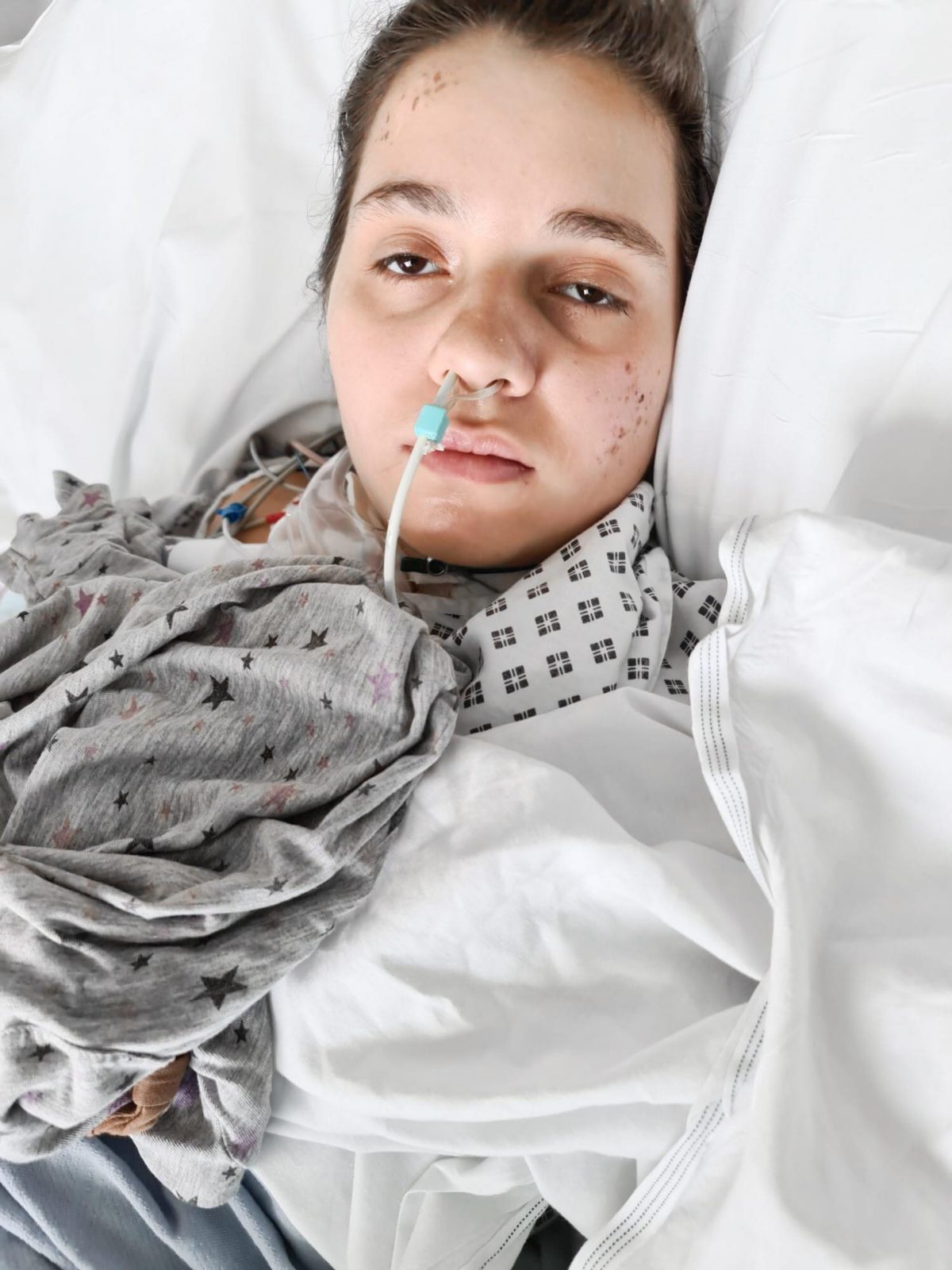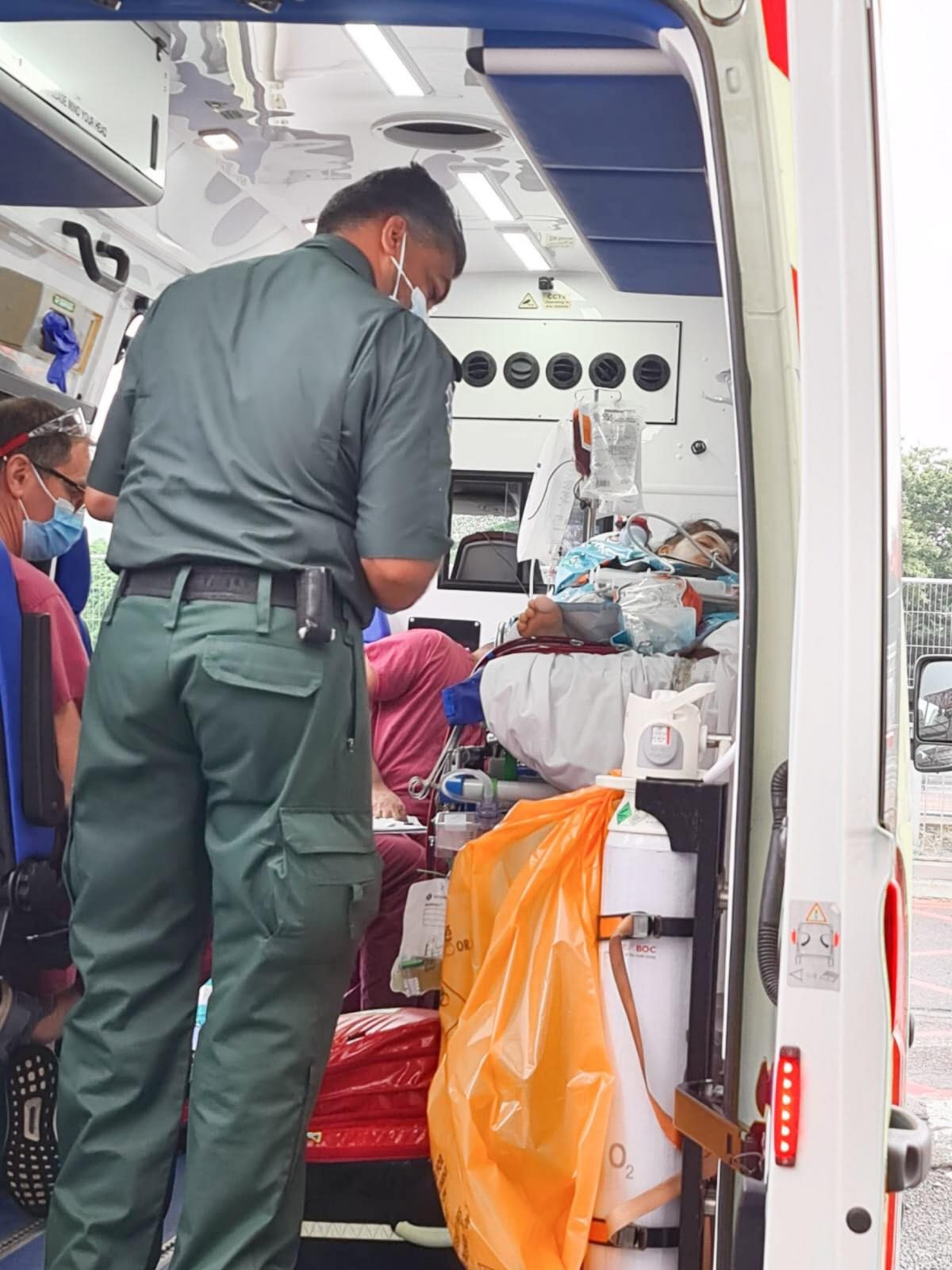TEEN sent home with suspected chest infection rushed to hospital three days later with sepsis and MRSA pneumonia.
Shola Saunter is still struggling with horrific after effects after contracting the deadly infection and MRSA pneumonia in June.
The 18-year-old had initially gone to hospital in Ashford, Kent after struggling to breathe but was sent home with paracetamol with a suspected chest infection.
Three days later Shola was rushed back into hospital in an ambulance where she suffered two seizures and was put in an induced coma for three weeks.
She then suffered a stroke and was diagnosed with several life threatening conditions, including sepsis and MRSA, at St Thomas’ Hospital in Westminster, London.
At the time Shola’s parents were told she was dying and that her body was shutting down.
Amazingly, the teen manages to fight back and six months on has learned to walk and talk again.

However, she is still struggling with post sepsis syndrome (PSS) causing Shola to have nightmares and flashbacks of what she thought was happening while in a coma.
Speaking today, Shola said: “On the 10th of June 2021, I went into hospital with what I thought was a chest infection.
“The doctors gave me a fright when they told me it could be a blood clot, but 8 hours later after a chest X-Ray and a blood test I was sent home.
“They told me I had a chest infection as I’d suspected, but wouldn’t give me antibiotics. I was discharged and instructed to take paracetamol and ibuprofen.
“Three days later I was rushed to hospital, and suffered two seizures in the ambulance on the way. I was put into an induced coma on a ventilator, and was transferred to St Thomas’ Hospital to be placed on their ECMO machine.

“I had sepsis, MRSA, pneumonia, aspiration pneumonia, lung failure and blood clots in my lungs and spleen, and suffered a stroke whilst I was in a coma.
“My family were told on three occasions that I was dying and that my body was shutting down.
“They sat by my bedside for countless hours praying I’d pull through, which was extremely traumatic.
“When I first came round from the coma I was very confused, agitated and scared.

“I didn’t know why I was laid up in a hospital bed with lines all over me.
“I was paralysed from the waist down and I had a tube hanging out my neck.”
After fighting for her life in hospital, Shola has been left with horrific long term effects from being put in a coma and having sepsis.
She said: “Since coming home I’ve also experienced something called post sepsis syndrome, for those who don’t know, it’s a condition the majority of people who have had sepsis will suffer with.
“I’ve suffered from; anxiety and depression, panic attacks, PTSD, lack of sleep, nightmares, flashbacks, loss of self esteem, mood swings, difficulty functioning, lack of motivation, extreme hair loss and loss of appetite, shortness of breath and short term memory loss.
“In the dream my mum was walking out of the hospital and a machete came and sliced her arm off.

“At the time I thought she was dead, so I grieved for my mum.
“They then turned and stabbed my sister at the back of the neck and my sister blamed and resented me for killing my mum because they wanted me.
“I then had a dream that my mum and sister had an acid fight and my sister put my mum’s face in it and burned out her eye. “I was mortified.
“Since coming home from the hospital, life has been a real test.
“I had to learn to walk again which was the hardest thing I have ever had to do, along with learning how to talk again.
“It took me weeks to be able to stand with two people holding me, and it was a huge struggle to hold myself up let alone walk.
“But more to the point, I did it and I can walk today.
“I can do long distance walks and live my life, but not to the same extent other 18-year-old’s do.
“I have to be extra careful when going out and with who I’m mixing with due to lung failure, if I catch covid I could potentially land back in hospital and on the ventilators again, or worse dead.”
In the UK alone, 245,000 people are affected by sepsis with at least 48,000 people losing their lives in sepsis-related illnesses every year.
This is more than breast, bowel and prostate cancer combined.
MRSA most often causes skin infections and, in some cases, pneumonia and other infections.
If left untreated, MRSA infections can become severe and cause sepsis, the body’s extreme response to an infection.
